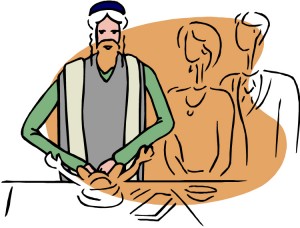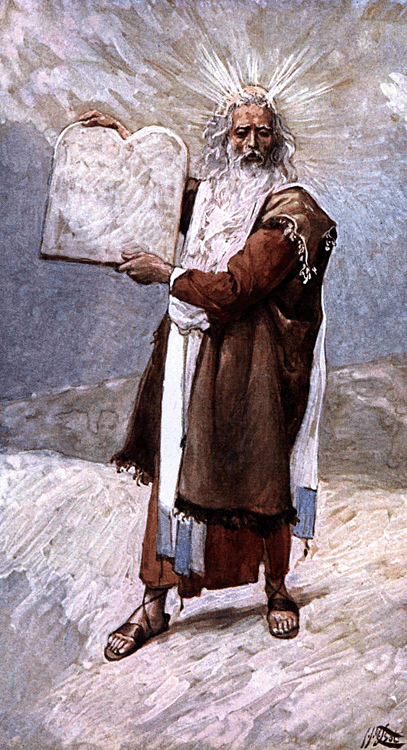What does it mean to have a circumcised heart? What’s an uncircumcised heart? How does one go from having a hard and stoney heart to a soft heart upon which YHVH can write his Torah—his instructions in righteousness? This video discusses this critical, salvational issue.
Here is a study guide to go with this video—
The heart of man in its natural, spiritually unregenerted state is hard, obstinate and rebellious toward the Torah-instructions of YHVH Elohim. Man can’t help himself—this is just the way he is innately. This is the bad news. the good news, however, is that YHVH Elohim, man’s creator, knows how to fix the problem. The solution is the “rain” of YHVH’s Holy Spirit, which can fall on the stoney ground of men’s heart, soften that hard ground, and allow the good seed of Elohim’s Word to germinate, grow and eventually bear spiritual fruit. A day is coming in the near future prior to the return of Yeshua the Messiah when YHVH will pour out his Spirit upon many people causing them to forsake their wicked and rebellious ways and turn to him in loving obedience.
The Bad News: The Problem Is Man’s Sinful Condition
We must first discuss the bad news before we can talk about the good news. Sadly, modern gospel preachers often omit or only lightly touch on or water down the bad news of the sinful condition of man’s spiritually unregenerated heart. Here’s what the Word of Elohim has to say about men’s heart
Jer 17:9 The heart is deceitful [sly, insidious, deceitful, slippery] above all things, and desperately wicked [to be weak, sick, frail, to be incurable, to be sick]: who can know it?
Rom 3:10–18 As it is written, There is none righteous, no, not one: There is none that understandeth, there is none that seeketh after Elohim. They are all gone out of the way, they are together become unprofitable; there is none that doeth good, no, not one. Their throat is an open sepulchre; with their tongues they have used deceit; the poison of asps is under their lips: Whose mouth is full of cursing and bitterness: Their feet are swift to shed blood: Destruction and misery are in their ways: And the way of peace have they not known: There is no fear of Elohim before their eyes.
Rom 7:14–25 For we know that the law is spiritual: but I am carnal, sold under sin. For that which I do I allow not: for what I would, that do I not; but what I hate, that do I. If then I do that which I would not, I consent unto the law that it is good. Now then it is no more I that do it, but sin that dwelleth in me. For I know that in me (that is, in my flesh,) dwelleth no good thing: for to will is present with me; but how to perform that which is good I find not. For the good that I would I do not: but the evil which I would not, that I do. Now if I do that I would not, it is no more I that do it, but sin that dwelleth in me. I find then a law, that, when I would do good, evil is present with me. For I delight in the law of Elohim after the inward man: But I see another law in my members, warring against the law of my mind, and bringing me into captivity to the law of sin which is in my members. O wretched man that I am! who shall deliver me from the body of this death? I thank Elohim through Messiah Yeshua our master. So then with the mind I myself serve the law of Elohim; but with the flesh the law of sin.
Rom 8:1 There is therefore now no condemnation to them which are in Messiah Yeshua, who walk not after the flesh, but after the Spirit. For the law of the Spirit of life in Messiah Yeshua hath made me free from the law of sin and death. For what the law could not do, in that it was weak through the flesh, Elohim sending his own Son in the likeness of sinful flesh, and for sin, condemned sin in the flesh: That the righteousness of the law might be fulfilled in us, who walk not after the flesh, but after the Spirit. For they that are after the flesh do mind the things of the flesh; but they that are after the Spirit the things of the Spirit. For to be carnally minded is death; but to be spiritually minded is life and peace. Because the carnal mind is enmity against Elohim: for it is not subject to the law of Elohim, neither indeed can be. 8 So then they that are in the flesh cannot please Elohim. 9 But ye are not in the flesh, but in the Spirit, if so be that the Spirit of Elohim dwell in you. Now if any man have not the Spirit of Messiah, he is none of his.
Heb 3:7–19 Wherefore (as the Ruach HaKodesh saith, Today if ye will hear his voice, Harden [to render obstinate, stubborn] not your hearts, as in the provocation, in the day of temptation in the wilderness: When your fathers tempted me, proved me, and saw my works forty years. Wherefore I was grieved with that generation, and said, They do alway err in their heart; and they have not known my ways. So I sware in my wrath, They shall not enter into my rest.) Take heed, brethren, lest there be in any of you an evil heart of unbelief [unfaithfulness, faithless, want of faith, unbelief, weakness of faith], in departing from the living Elohim. For some, when they had heard, did provoke [exasperate, to rouse to indignation]: howbeit not all that came out of Egypt by Moses. But with whom was he grieved forty years? was it not with them that had sinned, whose carcases fell in the wilderness? And to whom sware he that they should not enter into his rest, but to them that believed not? So we see that they could not enter in because of unbelief [unfaithfulness, faithless, want of faith, unbelief, weakness of faith].
Heb 4:6–7 Seeing therefore it remaineth that some must enter therein, and they to whom it was first preached entered not in because of unbelief [obstinacy, obstinate opposition to the divine will]: Again, he limiteth a certain day, saying in David, To day, after so long a time; as it is said, To day if ye will hear his voice, harden [to render obstinate, stubborn, to be hardened, to become obstinate or stubborn] not your hearts.
Rom 3:23 For all have sinned, and come short of the glory of Elohim.
1 John 1:8–10 If we say that we have no sin, we deceive ourselves, and the truth is not in us If we confess our sins, he is faithful and just to forgive us our sins, and to cleanse us from all unrighteousness. If we say that we have not sinned, we make him a liar, and his word is not in us.
The Good News: The Father Is Calling His Prodigal Children Back to Him
Because of man’s sinful rebellion against Elohim, which commenced at the tree of knowledge, man has been in a state of spiritual wandering, separation and exile from a loving relationship with Elohim ever since. This reality is illustrated by two notable historical examples from the pages of the Bible. Because of sin and rebellion, YHVH cast Adam and Eve out of the Garden of Eden, and similarly, he cast Israel out of the Promised Land because of their apostasy from the Torah. Continue reading





